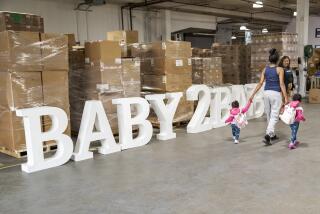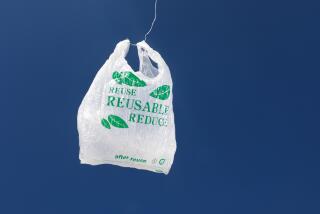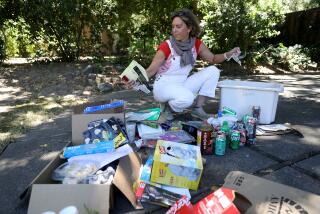Diapers in for a Change
- Share via
American parents use 18 billion disposable diapers a year. The plastic-and-paper diapers leak less than the real thing, keep babies drier and are more convenient. Disposal, however, is becoming a major solid-waste problem.
Disposable diapers all wind up in landfills, where they will take up to 500 years to decompose. The waste also can breed bacteria and viruses. Cloth diapers are the best answer to the waste problem. They are cheaper, reusable and unpopular. Nearly 80% of parents depend on disposable diapers. They also are a staple in hospitals and day-care centers.
Recycling disposable diapers could reduce the strain on landfills. A major diaper manufacturer, Procter & Gamble, plans to start a move toward recycling with two experimental projects. The firm isn’t getting into the diaper-recycling business itself, but will sponsor projects to prove that recycling works and encourage entrepreneurs to tackle the job.
Dirty diapers, collected from 1,000 volunteers in Seattle, will be washed and sanitized. The plastic will be recycled into flower pots and park benches; the paper will be recycled into cardboard, dry-wall backing and paper-blown insulation. In a second project, dirty diapers in St. Cloud, Minn., will be recycled into compost. That city was chosen because much of its garbage already is turned into compost. Additional projects will measure the rate at which diapers disintegrate.
Biodegradable, disposable diapers made of cornstarch-based plastic take only between two and five years to decompose, according to advertising claims. The chemical-free diapers are gaining in popularity, especially in one state. Nebraska, a major producer of corn, will ban the sale of non-biodegradable diapers after 1993.
A typical baby uses 7,500 disposable diapers in a lifetime. A major effort to recycle the diapers would take a major burden from the environment, particularly around urban areas.
More to Read
Sign up for Essential California
The most important California stories and recommendations in your inbox every morning.
You may occasionally receive promotional content from the Los Angeles Times.













